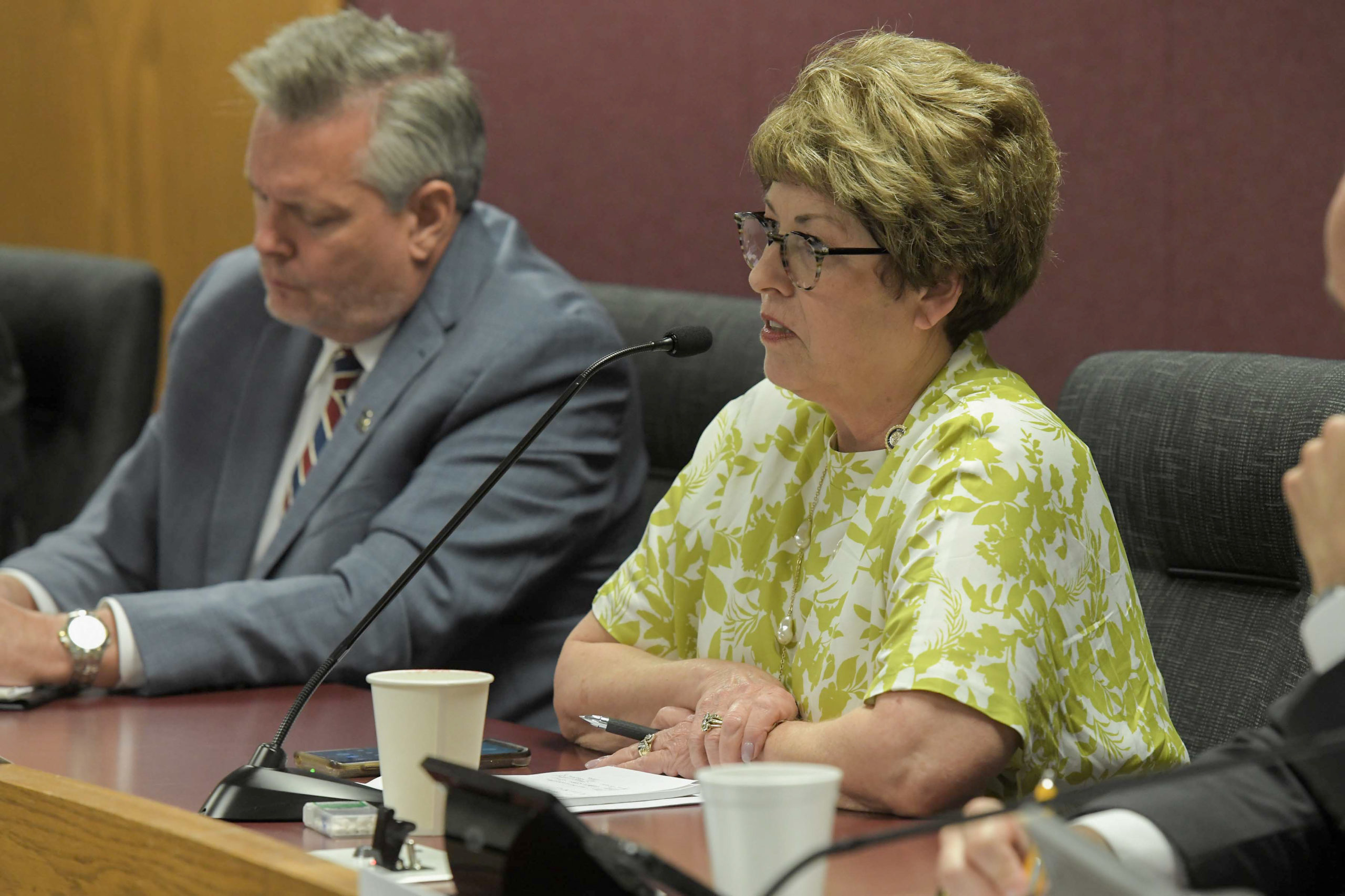JEFFERSON CITY, Mo. — Out of more than 400 local education agencies surveyed, only Kansas City Public Schools said it has approved curriculum containing so-called critical race theory.
Kansas City Public Schools was the only local education agency (LEA) to respond affirmatively to the survey from the Department of Elementary and Secondary Education (DESE). Five LEAs left the question blank, and 419 said they did not have critical race theory in their curriculum.
However, three LEAs — Kansas City Public Schools, Hazelwood School District, and the School District of University City — said they had curriculum containing the controversial New York Times’ 1619 Project. For that question, 14 LEAs did not provide an answer, and 408 responded in the negative.

Although it’s not a new concept, critical race theory and the 1619 Project have emerged as a hot-button issue for those on the right, particularly in recent months. Simply put, critical race theory is an academic and legal study of how racism has impacted the U.S. — from politics to culture and more. The 1619 Project has faced criticisms about its accuracy.
But data compiled by No Left Turn in Education — a grassroots organization supporting parents against critical race theory teachings — included more than just race-related issues being taught in Missouri schools. As presented before a recent Joint Committee on Education hearing, curriculum included a survey on high school students’ political affiliations and views on abortion and a gender identity and expression assignment for K-2 students.
“According to evidence local parent groups have given me taken directly from their schools’ curriculum, it is simply not true that only Kansas City is involved in critical race theory,” Sen. Cindy O’Laughlin, chair of the Joint Committee on Education, told The Missouri Times.
O’Laughlin said she’s sent “much of that evidence” to DESE already.
 Loading...
Loading...
Rep. Doug Richey, the Republican vice chairman of the committee, said he believed the questioning of schools wasn’t quite tailored enough given the lack of a precise definition of critical race theory.
“How do you ask the question — ‘Are you teaching something?’ — if we’re struggling to define it? Absent that definition, especially right now with as much of a lightning rod issue as it’s become, it only increases the probability that the answer is ‘no,'” Richey said.
The Republican lawmaker added he believed there would be “ongoing conversations” with DESE to better assess the presence of critical race theory in schools.
Mallory McGowin, chief communications officer for DESE, said the department does not have further comments regarding the survey. She’s previously said DESE does not collect data or information on the curriculum and materials LEAs provide, but it had been asked to survey them regarding the use of critical race theory teachings.
“This data will certainly be used moving forward as CRT-related conversations continue,” McGowin said in an email.
Gov. Mike Parson also recently addressed the issue, saying the “vast majority” of Missouri schools are not teaching critical race theory but instead “diversity, equity, and inclusion to help prepare our students for life and for the workforce by allowing them to better understand and respect each others’ differences.”
City Garden Montessori said it does not have curriculum including the 1619 Project or critical race theory but said the project has been shared with teachers as a resource. It also said it does “incorporate anti-bias, anti-racism” in its curriculum along with systemic racism discussions.
Hazelwood said the 1619 Project is used as a teacher resource for 4th-grade social studies regarding the arrival of enslaved people in Jamestown. Additionally, two paragraphs regarding the arrival of enslaved African people are given to students in an 8th-grade social studies class. It’s also used in a 9th-grade U.S. history class as a suggested learning activity from when former President Donald Trump discussed it and the 1776 Commission, the district said on its survey.
Kansas City 33 said: “We offer an African Centered College prep magnet school that services both elementary and secondary students. The board also approved the 1619 Project service learning and community activism grant to be taught during summer school. The curriculum is fully aligned with the Missouri Learning Standards.”
University City said the board did not approve the 1619 Project, but one teacher used it as a resource during a “unit of study with students.”
The next Joint Committee on Education hearing has not yet been scheduled.
This story has been updated.

Kaitlyn Schallhorn was the editor in chief of The Missouri Times from 2020-2022. She joined the newspaper in early 2019 after working as a reporter for Fox News in New York City.
Throughout her career, Kaitlyn has covered political campaigns across the U.S., including the 2016 presidential election, and humanitarian aid efforts in Africa and the Middle East.
She is a native of Missouri who studied journalism at Winthrop University in South Carolina. She is also an alumna of the National Journalism Center in Washington, D.C.
Contact Kaitlyn at kaitlyn@themissouritimes.com.
























